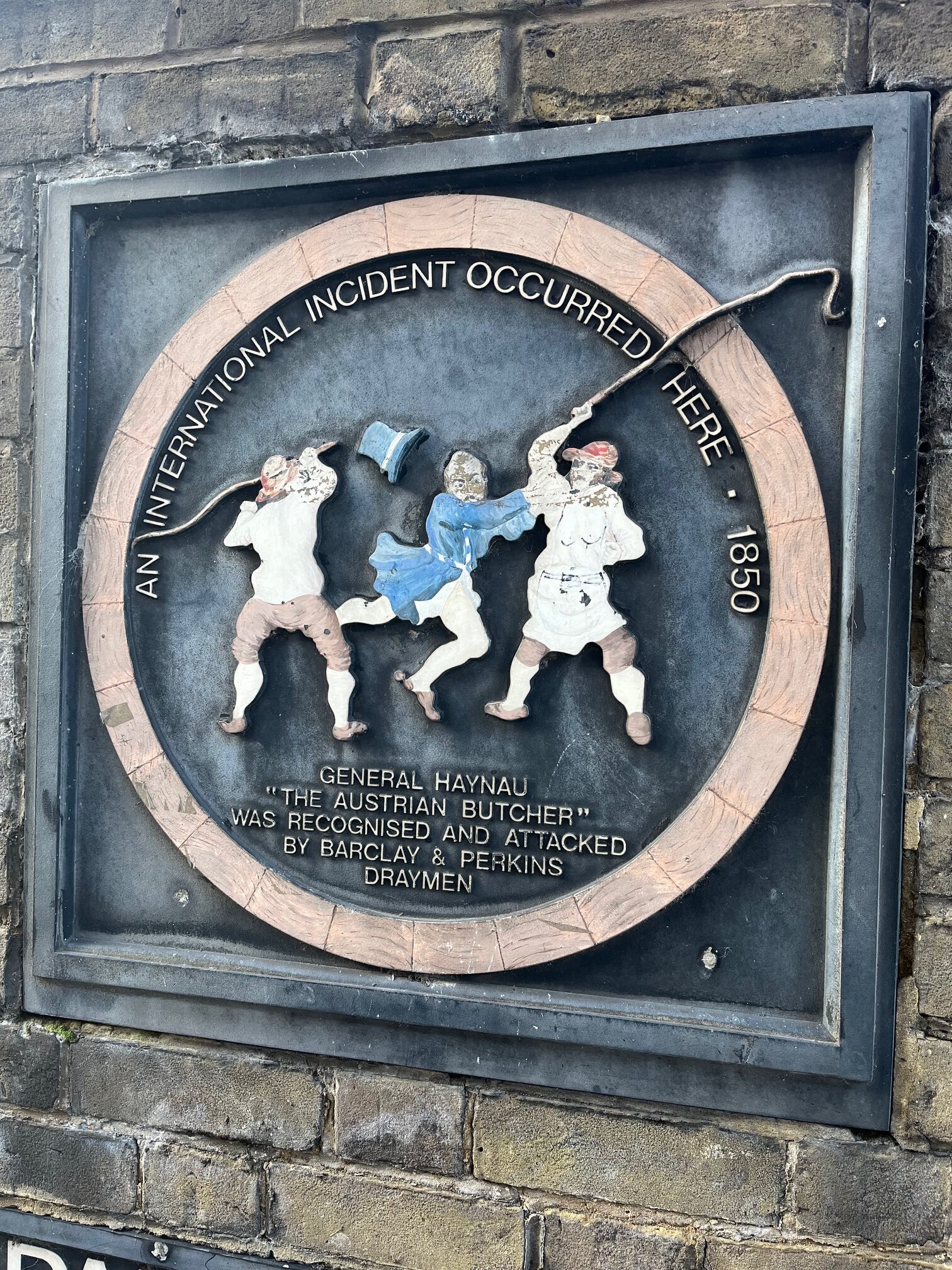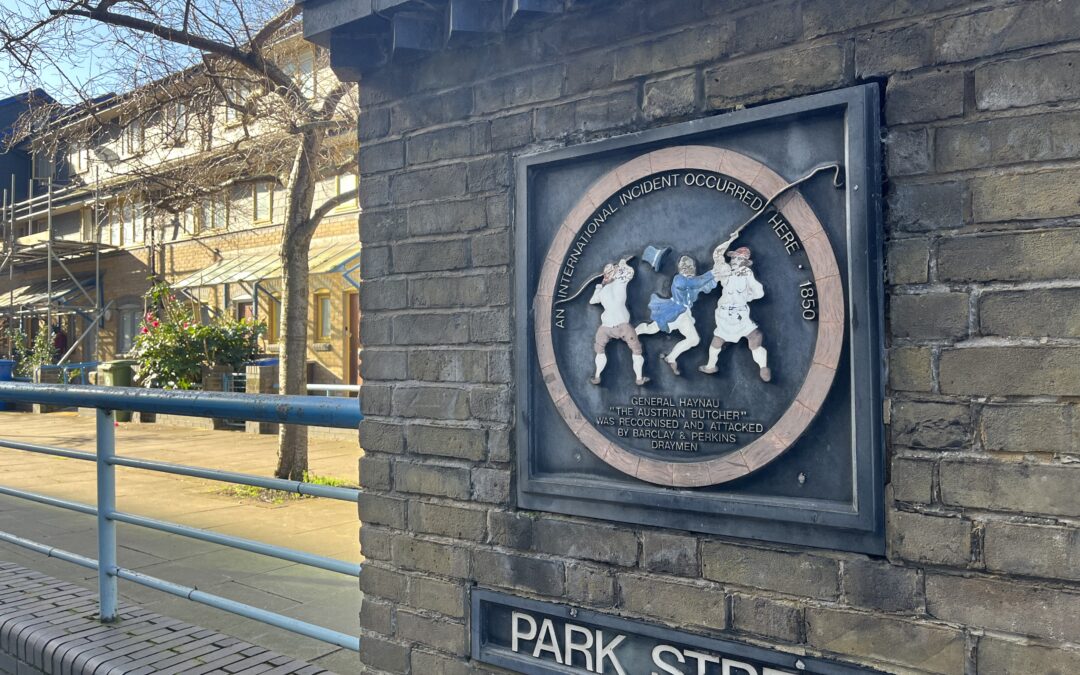
A pretty bold statement that. But like all ‘what if’ historical events you’ve got to use the facts and add a large dose of imagination.
Take you back to 1850 and here on Park Street stood the Anchor Brewery, the largest brewery in Europe. It belonged to Barclay Perkins & Co and was originally established in 1616, which means they’ve been drinking beer in this part of SE1 for an awful long time which is something that probably won’t surprise you if you know the area.
Mind you in the early days, often beer was drunk instead of water as at least the beer was processed, whereas London’s water supplies in those days were distinctly dodgy leading to at best stomach upsets and at worst outbreaks of cholera. The beer they produced in those days was called ‘small beer’ (like the expression) as it contained a lower amount of alcohol – only about 1 – 2 % . It had a porridge like consistency and was drunk by families even children.
Anyway, I digress. By the mid-19th century, the Anchor Brewery had earnt a worldwide reputation and was visited by many European dignitaries. One dignitary in particular though must have wished he hadn’t, and it’s what was happened to him, that could have indirectly led to the First World War.
Julius Jakob Freiherr von Haynau was an feared Austrian General who had become infamous in Europe for his brutal and bloody suppression of insurrectionary movements in Italy and Hungary. In particular there was universal disgust of his practice of flogging women and execution of rebels.
He decided to come to London to take a tour of the Anchor Brewery but his notoriety had preceded him and was already a figure of hatred in British newspapers in particular, who berated him for his foul behaviour. It was during the tour that he was recognised by two brewery draymen (men who delivered the beer) who threw mud at him and chased him shouting ‘down with the Austrian butcher!’ Von Haaynau tried to hide but they spotted him and beat him, forcing him to take refuge in a nearby pub where he was eventually rescued by the local constabulary.
Such was the indignation of the Austrians that one of their senior generals had been humiliated in such a way, they demanded an official apology from the British Government, which was not forthcoming.
So seriously miffed were the Austrians, it is said that the incident contributed to their decision to side with Germany in the run up to WW1, emboldening the German Kaiser to pursue his aggressive policy of sabre rattling, leading to all out war.


